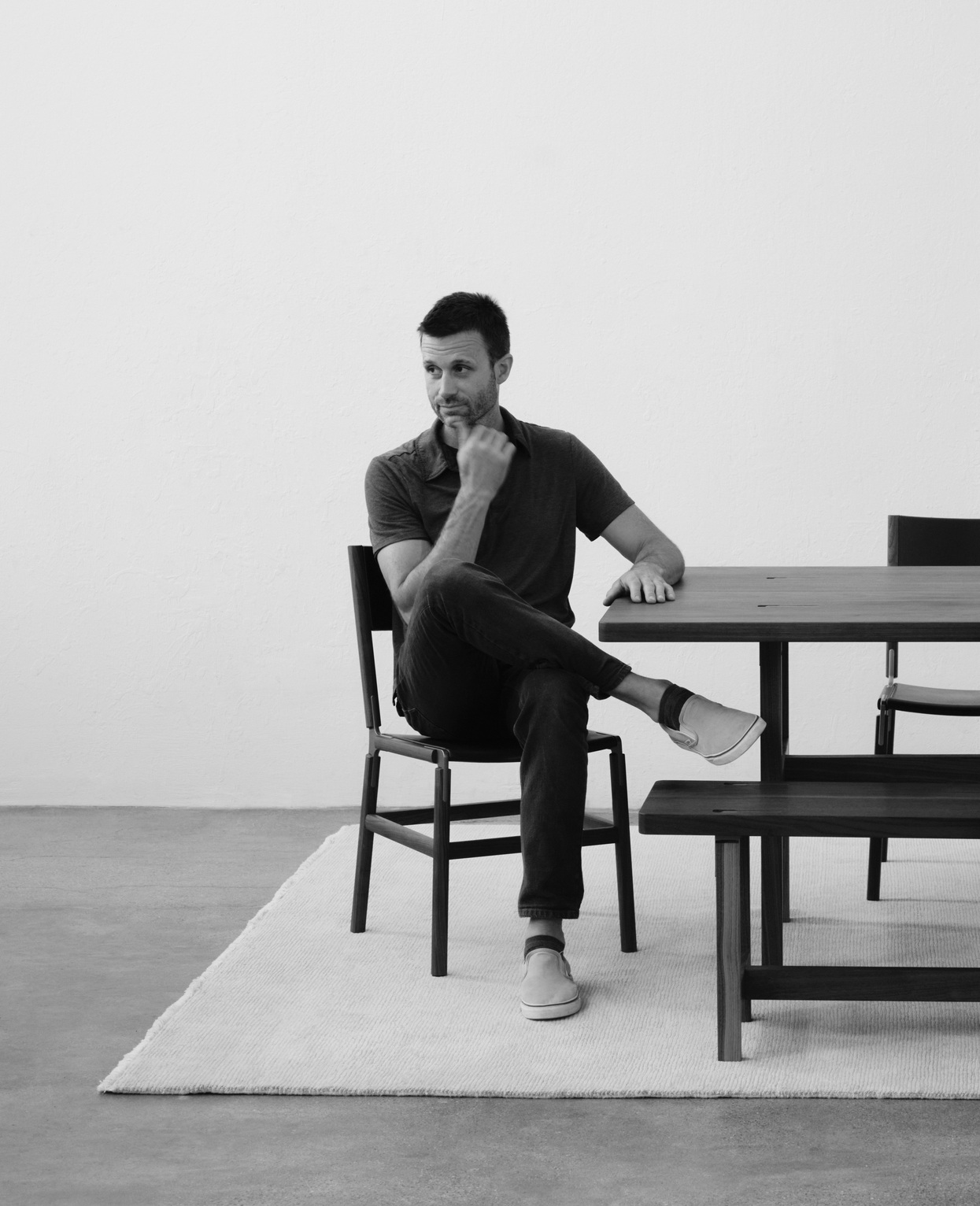
Ros Broughton and Alex Tieghi-Walker have craft in their blood.
The former is a fourth-generation woodworker; his ancestors established the very first furniture manufacturer in the United States, the Hitchcock Chair Company, back in 1818. He followed in their footsteps—“I literally just live and breathe woodworking”—10 years ago, co-founding design and furniture company Fyrn with David Charne in San Francisco.
Their chairs—defined by efficient lines, interchangeable parts (they are known for their Stemn system), and, quite naturally, wood—are staples in restaurants and homes alike. Last month, Broughton and Charne released a dining table and bench, expanding their furniture universe. This Keyhole Collection sports visible metal hardware details, an inside look at the sleek design objects’ anatomy.
Fyrn launched these new additions at Tiwa Select, Tieghi-Walker’s Tribeca gallery and project space. The creative is the son of an artist and a historian, and sees his work as a fusion of their two branches of storytelling. In New York, he runs a constantly evolving hub, home to exhibitions, film screenings, bacchanalian dinners, and meetings alike—all centered on the handmade and its resonance within our contemporary culture. To mark the launch of the Keyhole Collection, Broughton and Tieghi-Walker came together to talk about their design DNA and how they apply it to their respective practices.
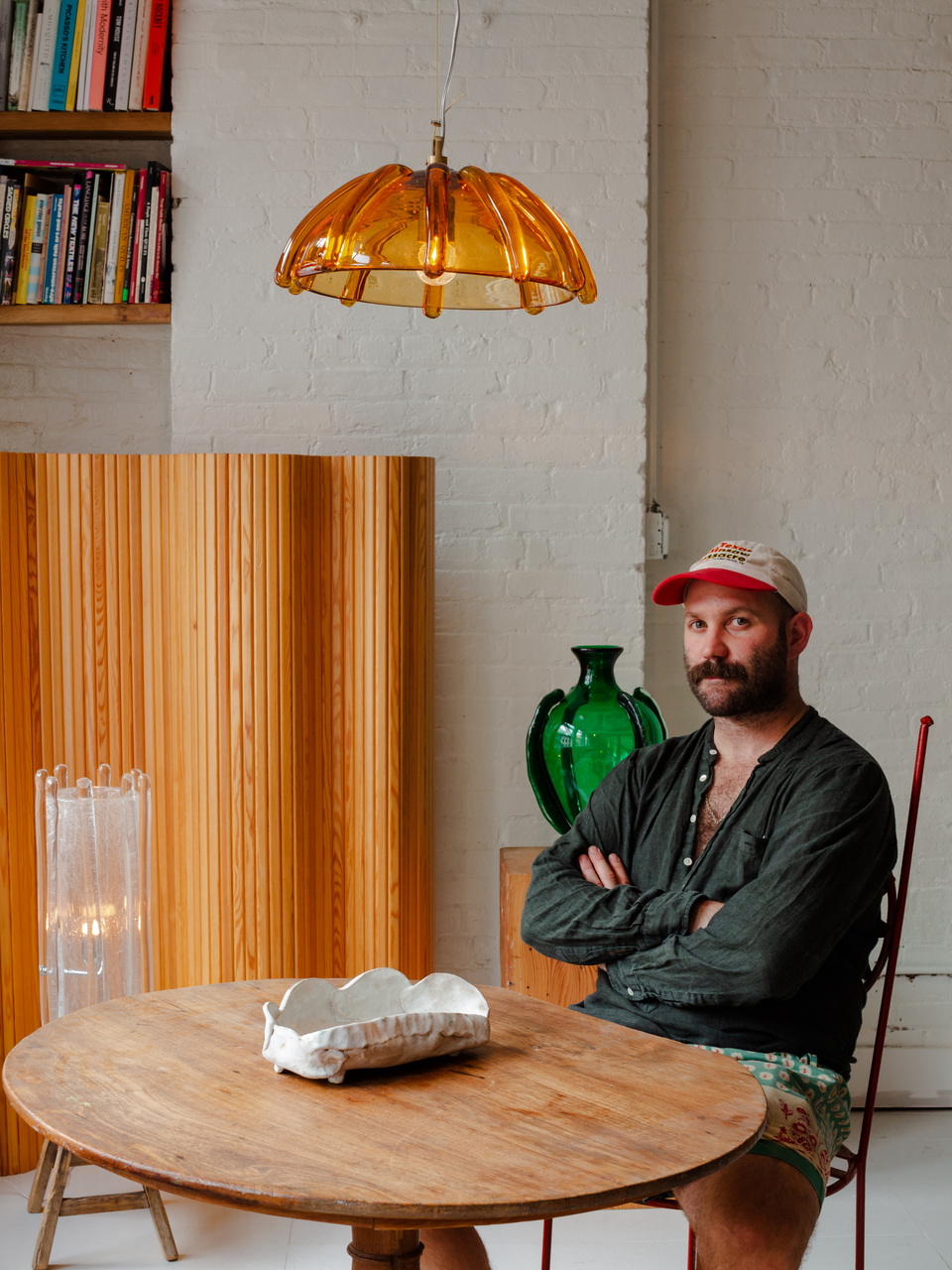
CULTURED: How did you become aware of each other's work and become interested in what your respective companies were doing?
Alex Tieghi-Walker: I run a gallery that focuses specifically on craft, and my main ethos is celebrating the handmade. Given that I also use my space for events, it was a bit of a challenge to think about how to fill the space with furniture to suit those needs in a way that honored my appreciation of craft. I didn't want something that was mass produced; I wanted something that sat between the worlds of the handmade and the commercially viable.
I was doing research on companies that were making products I thought would be great for the space, and that's how I encountered these guys. I recognized the furniture from restaurants that I’ve been to in the Bay Area, and it just felt like a really nice fit.
CULTURED: And Ros, why did Tiwa Select seem like an ideal place to partner with, especially to launch this most recent Keyhole Collection?
Ros Broughton: Alex’s interest and focus on craft is hugely meaningful to us. Knowing that craft is a lot of what he thinks about, what he focuses on, how he uses his space, and how he curates things felt like a really good fit with Fyrn.
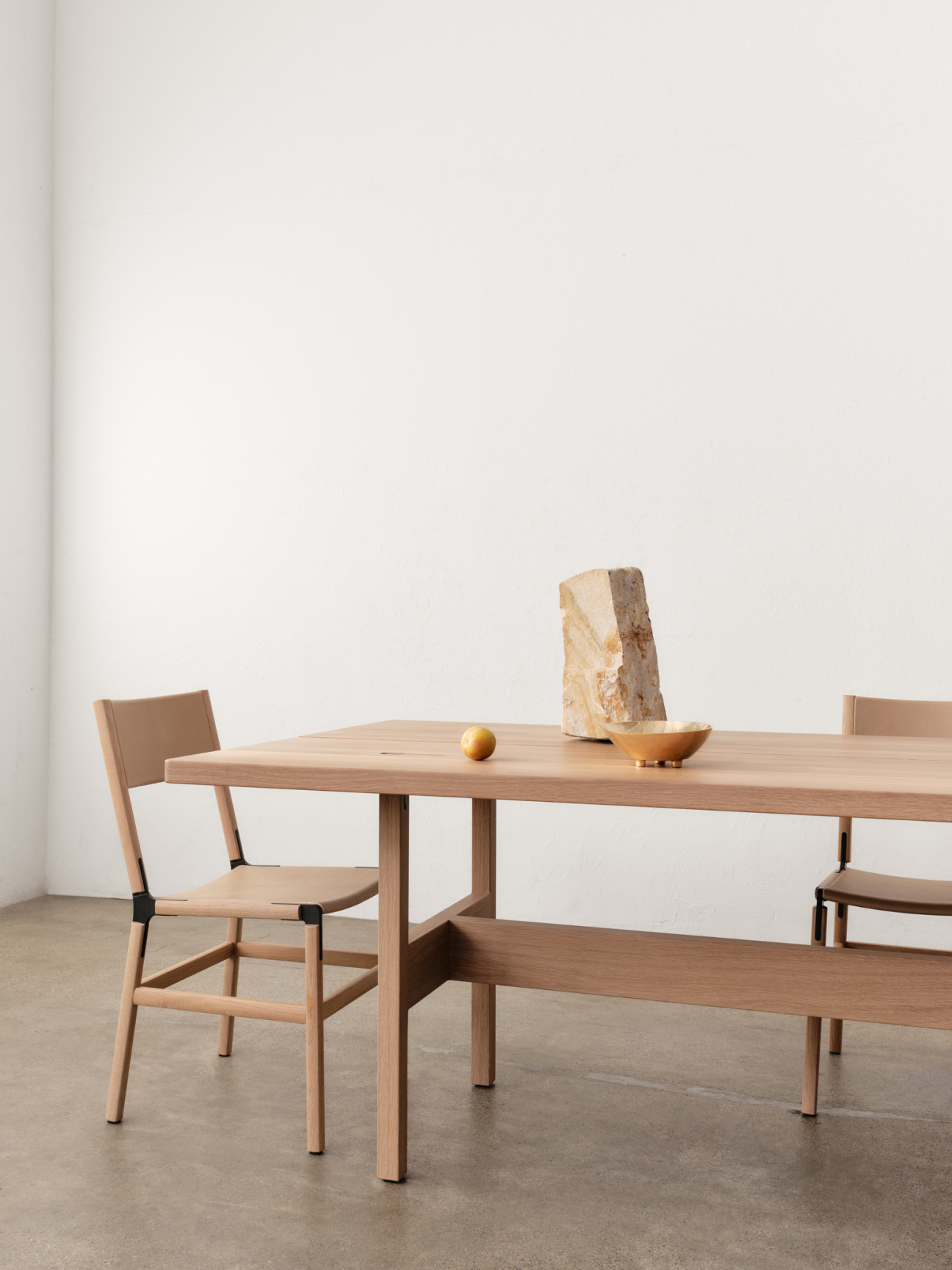
CULTURED: Ros, you're a fourth generation woodworker. What made you want to keep up your family's long tradition, and what keeps you so compelled by wood as a material?
Broughton: I literally just live and breathe woodworking. I’ve never lived in a place where there wasn't a wood shop literally on the same property. My father, my uncles, my grandfather, my brother, all of us, were drawn to it. There was a period of time, maybe 15 or more years ago, where I was thinking about where I was at in my career and whether or not woodworking was something I wanted to continue.
Someone once asked me what it was that I thought about outside of work. This made me realize that at any moment where I'm not burdened by the tasks of work, I'm thinking about the things that I want to create. Wood is the primary material that I’m good at, and that I’m familiar with.
CULTURED: Your family already has a very rich design vernacular embedded into its DNA. Where else do you look for inspiration to create Fyrn’s own specific design ethos?
Broughton: Inspiration is less about form or what something looks like; I instead chose to focus more on how useful something is. I like designs that are hard, not babied or put on a pedestal. That's where I think furniture really works well for me. It's more about the utility behind it, even though the pieces have aesthetic qualities that are unique and specific.
When I get really excited when I'm working on a new design, it's when I'm thinking about how to strip things back to the point where I’m making a truly useful object. I looked closely at the furniture that my grandfather was such a huge part of producing, which was the Hitchcock Chair Company. I didn't look at it as much for aesthetic inspiration, but for the craft, the quality that went into these pieces to make them what they were.
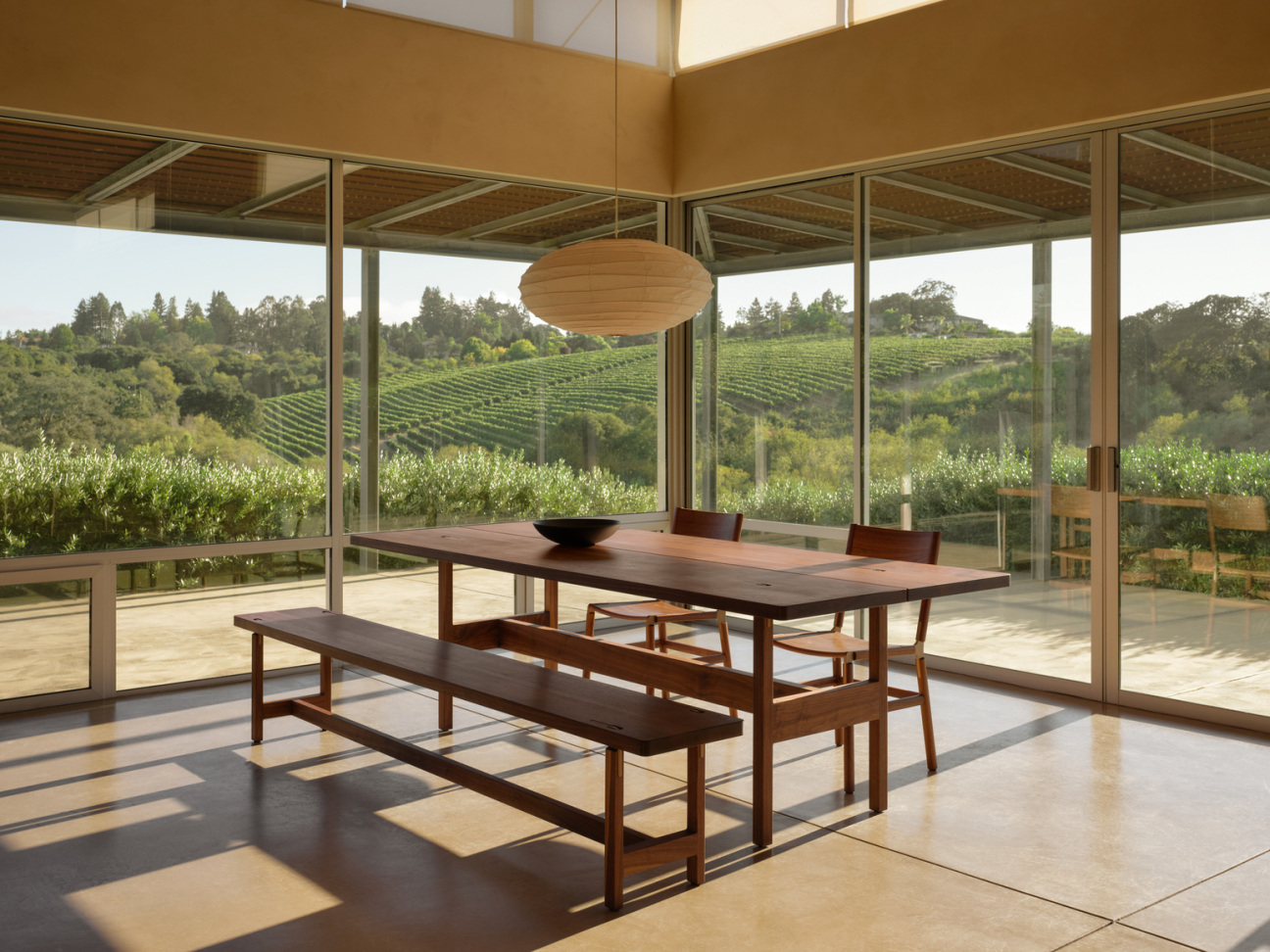
CULTURED: How does this attention to quality and utility reflect the cultural offerings at Tiwa Select, Alex?
Tieghi-Walker: Nearly everything that we do at Tiwa is taking the historical context of what building community means and how that is applied through communal gatherings. I still don’t know whether first and foremost this is an event space or an art gallery. I actually kind of like that. It really straddles the two. Our aim for the space is that in 10, 20 years time, people can say they met here. This can be the sort of place where communities start.
CULTURED: The Keyhole Collection marks Fyrn’s first bench and table. Ros, you’ve worked extensively with restaurants over the years. How did interacting with that world inform these pieces?
Broughton: Unlike a lot of products, furniture is not something that's meant to go obsolete. A lot of people when they purchase it, they purchase something knowing that they're going to have it for a long, long time. That was something that I found really inspiring when thinking about developing the Stemn system, thinking about the longevity of our furniture. Hopefully this type of product category would be used to bring people together, and not be so precious that they'd be afraid to use it.
[When I was thinking about what I wanted to do with my career,] a big part of it was like, Wow, if I continue to do this, what I'm actually doing is designing products that hopefully will be around for a long time, and would allow a lot of people to use, experience, and come together in many different ways, whether it be at home, or out in public spaces.
Tieghi-Walker: The idea of craft is that these objects are made for a certain level of permanence, right? This isn't a throwaway world. You're putting a lot of energy into creating something; therefore, you're designing it to really last a long time. What I love about the Fyrn chairs is, I'm kind of excited about fucking them up a little bit. I want to see what they look like in 10 years. Every person that sits in one of those chairs is going to have told a different story and will be from a different universe. I like that these chairs are the uniters of it all.
The chair has always been such an incredible piece of furniture, maybe the most important piece of furniture. The French word meubles, which means furniture, literally means mobile because furniture was designed for you to be moving as it were. Rooms didn't used to have specific functions. Sometimes a room would be a dining room, sometimes a room would be a bedroom, sometimes it'd be a sitting room. That's kind of how we think of this space.
CULTURED: It's the end of year, so let’s have a little moment of reflection. What do you two think the design world, or the world of craft, needs more of and less of right now.
Tieghi-Walker: Fads are funny, old things. I do love that craft is having a bit of a moment. I love that aspects of the world of handicraft are really being celebrated. I'd love to see more of that. I like that these traditional industries are being opened up again. It's not just design, it's food as well. I like that people are connecting in these traditional ways and rejecting the heavy consumer worlds, or mass produced worlds. I'm looking forward to seeing how that shapes itself in 2024.
Broughton: Less junk, more good stuff. There's a lot going on in the world right now, as we all know. We're at an interesting spot when it comes to design, craft, and thinking about where we're at here, as people on this planet, and all the challenges we're facing right now. With the new parameters and urgent needs that pertain to the things that are around us happening in the world, I think we're about to see some pretty cool different takes on design, as the earth and the climate becomes more and more urgent.
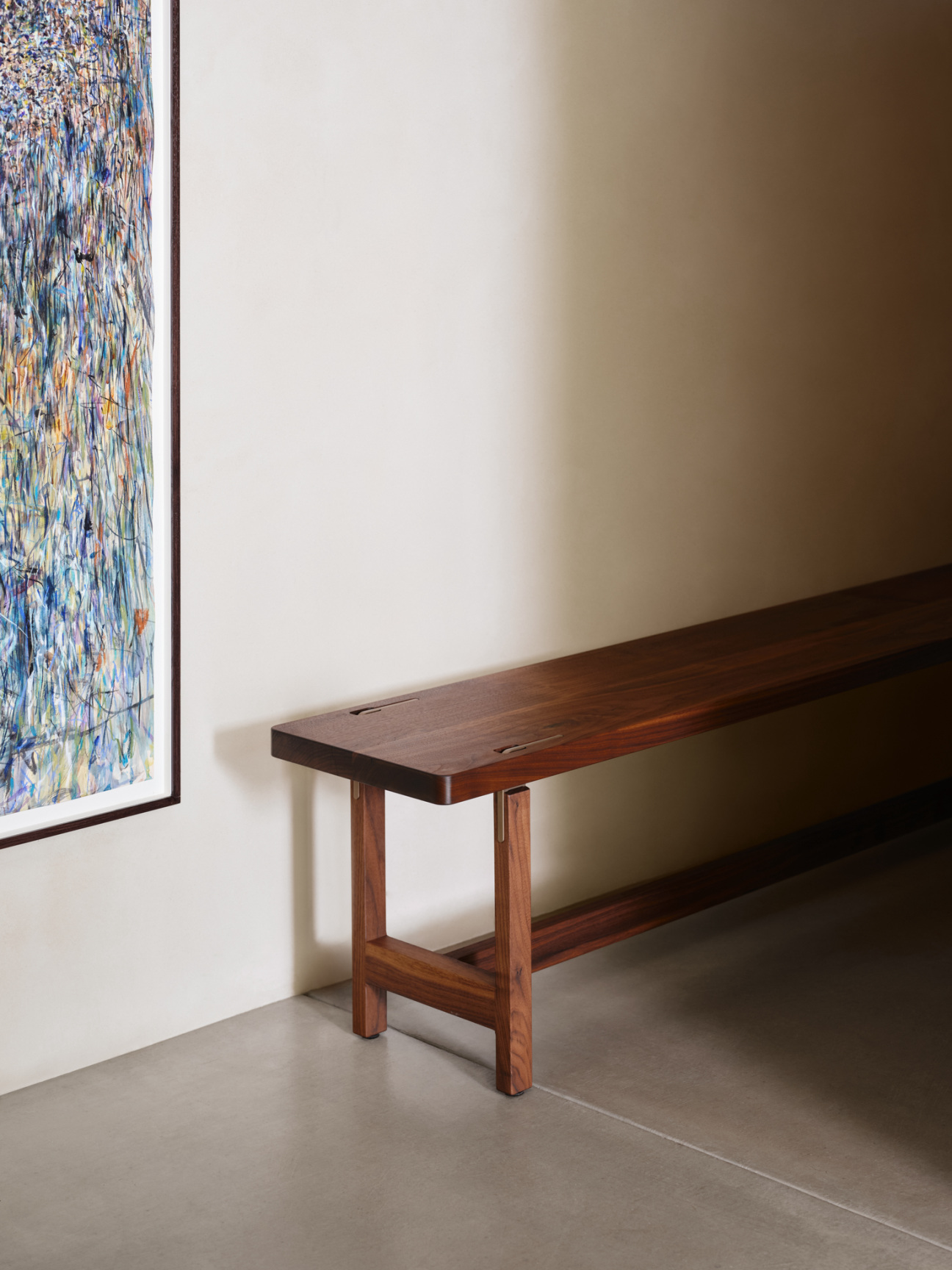
CULTURED: What are you two most excited about in 2024?
Tieghi-Walker: I'm really looking forward to kick-starting a food program in the space. I want to be getting a lot more guest chefs in. If ever a chef is in New York just visiting town and just feels like cooking something, I want them to think about doing something here. Obviously, our relationship with Fyrn plays into that as well. Being able to cater to that many people wouldn't be possible if we didn’t have tables and chairs for them to use.
Broughton: We're working on a number of new products. It's not 100 percent clear which one we're going to launch when, but all of them are exciting. We're a small company, so who knows what exactly we're going to do when, but that is on our calendar!

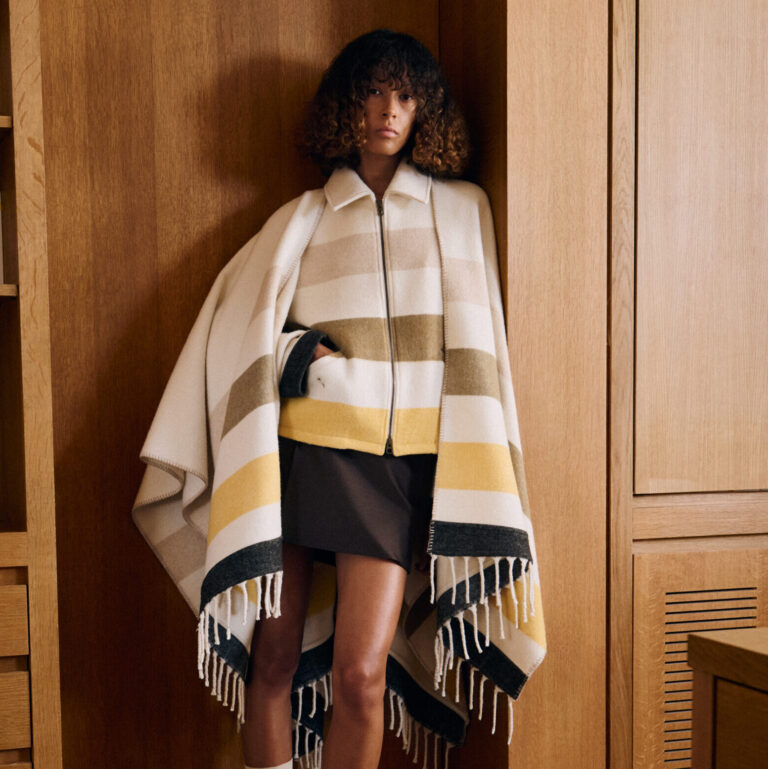
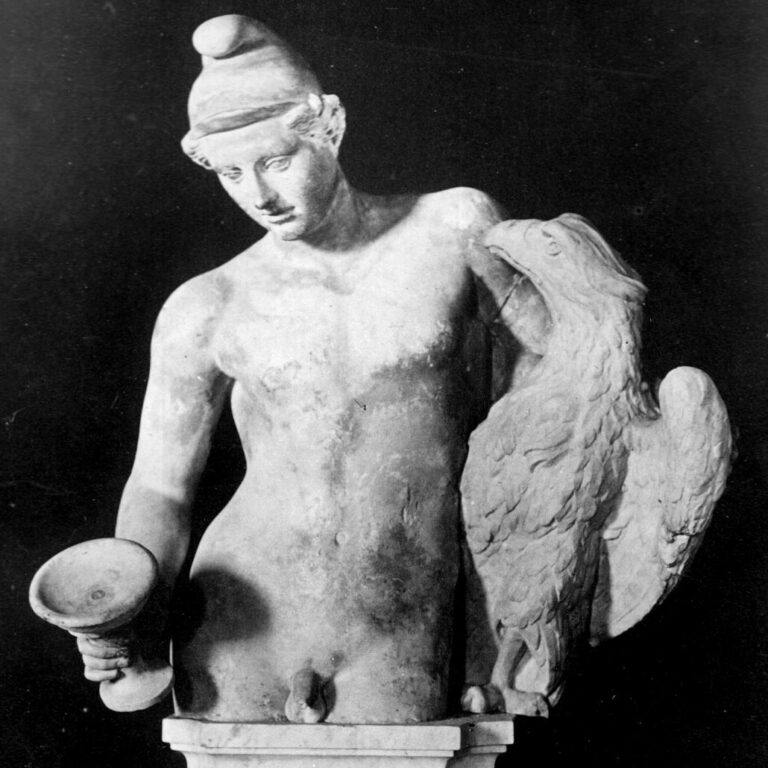

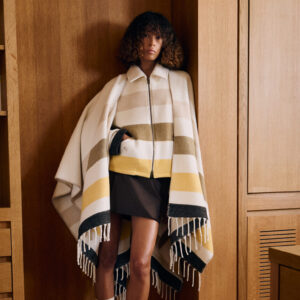
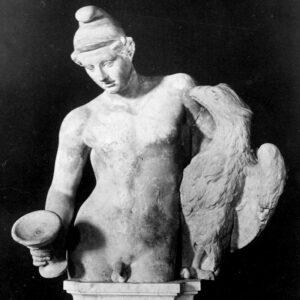




 in your life?
in your life?

